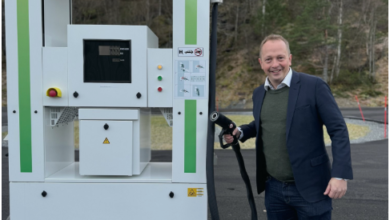California Fuel Cell Partnership foresees 70k hydrogen powered trucks and 200 stations by 2035
The latest report calls to expedite private investment in trucks, infrastructure, and hydrogen production.

The California Fuel Cell Partnership (CaFCP) foresees 70,000 heavy-duty fuel cell trucks supported by 200 heavy-duty truck stations by 2035.
In its latest vision report, “Fuel Cell Electric Trucks: A Vision for Freight Movement in California and Beyond,” released today, CaFCP has emphasised the urgent need for policies to expedite private investment to achieve the interim step towards a larger goal of 100% zero-emission trucks by 2045.
The report states that fuel cell electric trucks are vital to achieving California’s ambitious energy, environmental, and transportation policy goals. No other existing zero-emission vehicles offer diesel truck operators the same one-to-one replacement utility for the most demanding freight movement applications.
Heavy-duty trucks represent only 2% of vehicles on California roads, though they release over 9% of the State’s greenhouse gas emissions, 32% of its nitrogen oxides, and 3% of its particulate emissions. The California Fuel Cell Partnership members have set a vision for reaching market sustainability by 2035.
Jerome Gregeois, Director Commercial Vehicles Development at Hyundai-Kia and chair of the CaFCP board of directors, said, “At Hyundai-Kia, we know that battery and fuel cell electric technologies are needed to meet the diverse needs of our customers.”
Joe Cappello, CEO of Iwatani Corporation of America and vice-chair of CaFCP, said, “The successful rollout of heavy-duty, zero-emission trucks requires the interplay of several key elements. In the case of FCETs, that includes synchronising vehicle rollout with hydrogen fuelling infrastructure, and renewable and zero-carbon hydrogen production.”
Bill Elrick, executive director of CaFCP, said, “California has set aggressive goals to achieve zero-emission fleets across vehicle categories, including cars, buses, and trucks.”
